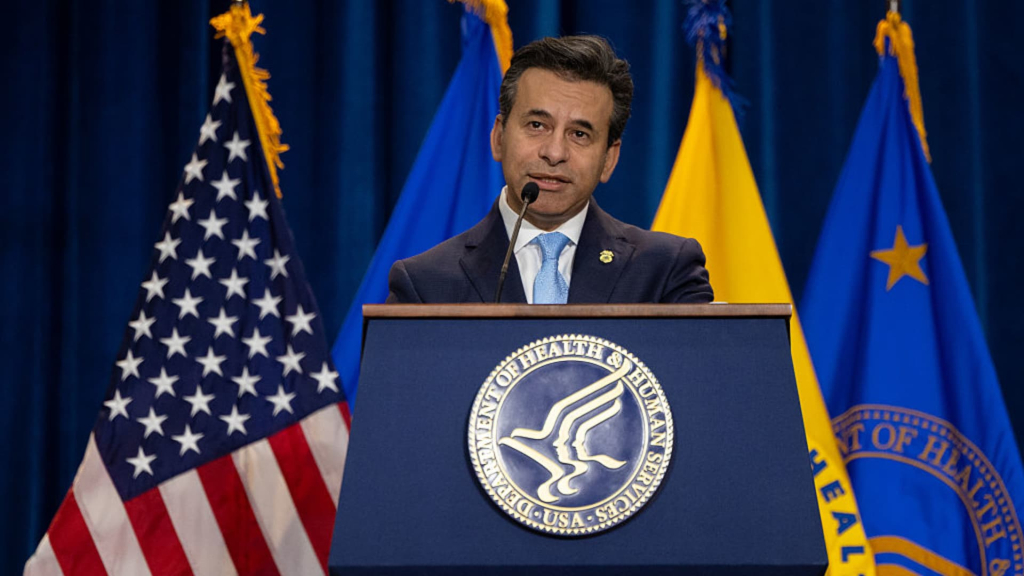During a Finance Newso interview on Friday, FDA Commissioner Dr. Marty Makary emphasized the agency’s commitment to considering drug affordability when issuing new priority vouchers designed to expedite the approval of certain treatments.
This initiative, announced in June, is part of a broader national priority voucher program aimed at reducing drug review times to as little as one to two months for companies that align with U.S. national interests. Notably, earlier communications regarding the program did not explicitly mention affordability as a criterion.
“We are including the affordability of drugs as a national priority,” Makary stated during the interview.
The Trump administration has placed significant emphasis on lowering drug prices. This commitment comes amid a potential threat of imposing tariffs as high as 200% on foreign pharmaceuticals, a move intended to encourage domestic drug manufacturing.
Makary further highlighted President Trump’s strong stance on reducing drug costs for Americans, expressing discontent with the fact that U.S. prices can be two to ten times higher than those in other developed nations.
However, the specifics regarding how the Trump administration will evaluate affordability during the drug review process remain unclear, particularly since pricing decisions are typically made post-approval in the U.S. market.
The FDA’s official resources currently outline four main “national priorities” for qualifying companies under the voucher program. These include responding to health crises in the U.S., providing innovative cures for patients, addressing public health needs, and emphasizing domestic drug manufacturing as a national security consideration.
It has been suggested that drug affordability may have already been a consideration, according to a recent Wall Street Journal report.
A spokesperson from the Department of Health and Human Services noted that the FDA will indeed factor in drug affordability, clarifying that the criteria are not restricted to previously cited examples.
In terms of actionable health crises, Makary expressed his desire to see advancements in various areas, including a cure for Type 1 diabetes, enhanced treatment options for neurodegenerative diseases, and the development of a universal flu vaccine.
Further, he outlined the need for more effective therapies for patients facing stage 4 cancer, where the disease has spread extensively within the body.
“We have a committee in place to decide which products and companies will be eligible for these vouchers as part of a pilot program,” Makary explained. “We need to innovate and ask ourselves why the market entry process takes so long. Our goal is to facilitate additional effective treatments and cures for the American people.”
The FDA anticipates issuing new vouchers this year, with plans to potentially expand the number of expedited approvals following a one-year pilot phase. Analysts on Wall Street have speculated that this voucher program might serve as a more effective method than tariffs for enticing drug manufacturers to establish operations in the U.S.
Nonetheless, concerns linger regarding the implications of hastening drug reviews to a minimum timeframe of 30 days and the possible influence of political affiliations on the awarding of vouchers, particularly regarding companies that may have been scrutinized by agency staff.

























